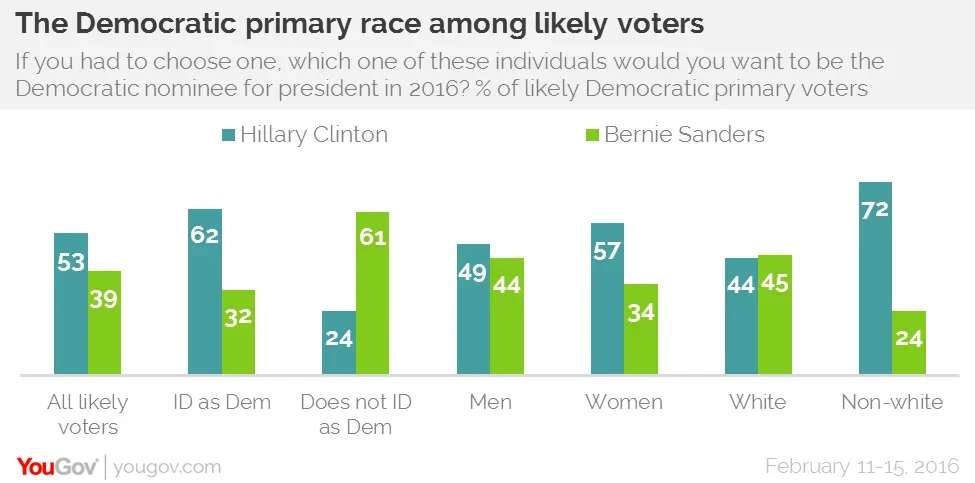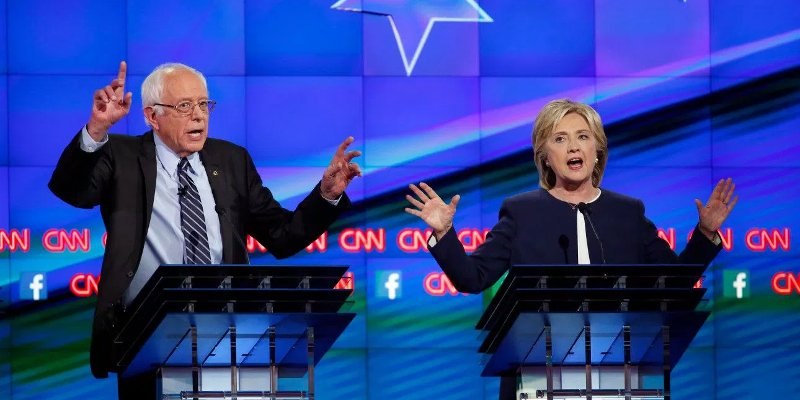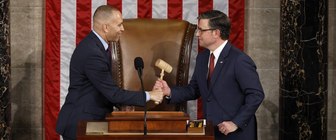Bernie Sanders is the most widely trusted presidential candidate of either party, but Hillary Clinton maintains a considerable lead in the race to become the Democratic nominee
Winning a primary – or at least doing better than expected – makes a candidate appear more formidable, especially to the opposition, and Vermont Senator Bernie Sanders has made gains in his image and the perception of his electability in the latest Economist/YouGov Poll, though nationally he still runs significantly behind his party’s longtime frontrunner.
Sanders, after a close loss to former Secretary of State Hillary Clinton in the Iowa Caucuses and a clear victory in New Hampshire, now appears to be a stronger candidate – especially to the opposition. Two weeks ago, before Iowa and New Hampshire, more than twice as many adults thought Clinton would win the Democratic Party’s nomination than expected Sanders would. Now the gap in expectations has been cut in half.
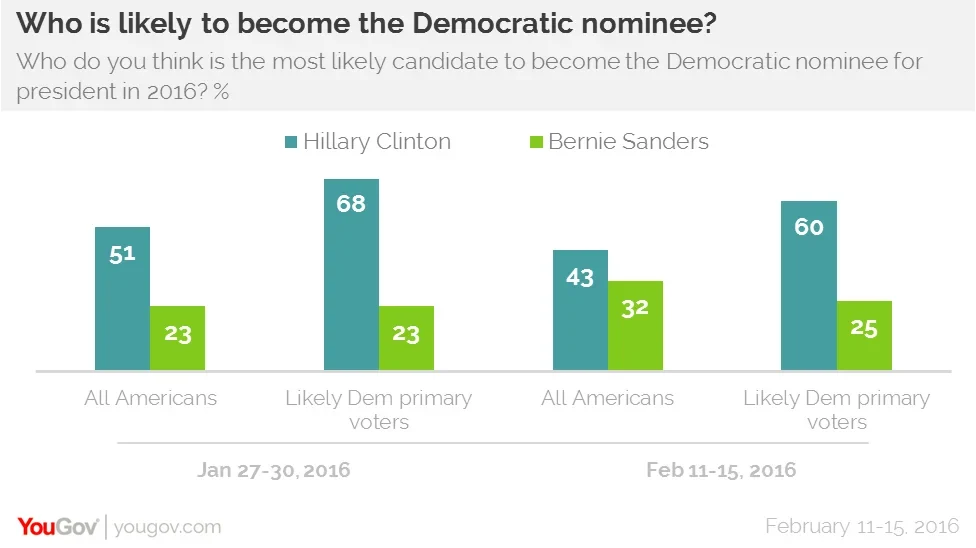
Democratic expectations about who will win the nomination have changed less than those of Republicans and independents, though Sanders has made some gains with Democratic voters, too.
Sanders was expected to win the New Hampshire primary. Looking ahead to the next two contests, Americans think the Nevada caucus will be a tossup, and that Clinton will win in Nevada. Democrats are surer of a Clinton victory in both places: by 50% to 31%, Democratic primary voters expect Clinton to win in Nevada; by more than two to one (59% to 24%) they believe she will carry South Carolina.
Sanders is the clear winner on a quality that matter most to a third of the public – being honest and trustworthy. In fact, his rating on honesty is the highest of any of the remaining candidates with the public overall, Republican or Democrat. Clinton and Republican Donald Trump fare the worst.
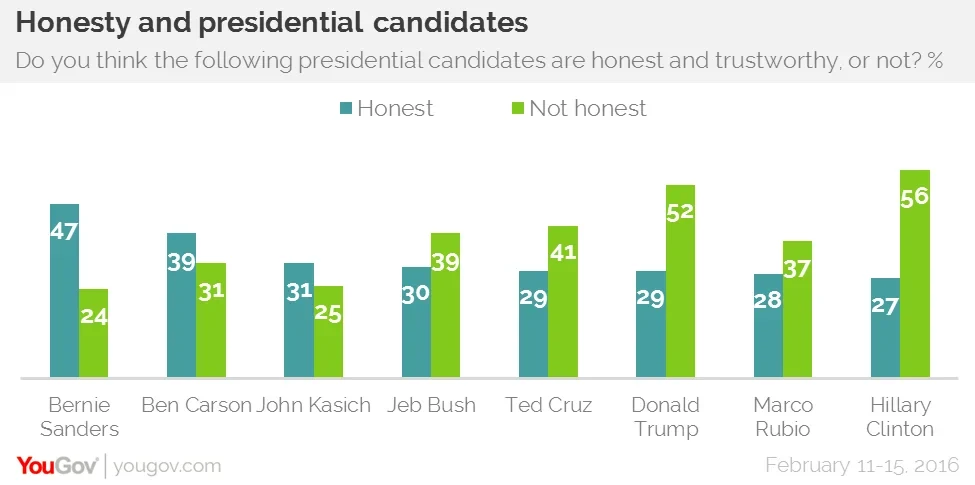
Sanders’ ratings with Republicans on honesty are especially high. More Republicans describe Sanders as honest and trustworthy than don’t, by a margin of 46% to 36%. Republicans give their party’s frontrunner, Donald Trump, similar ratings as they give Sanders on honesty. Sanders’ Democratic opponent fares much worse on this characteristic overall and with members of each party. Just 7% of Republicans and 48% of Democrats describe Clinton as honest and trustworthy.
But honesty isn’t the only reason people vote for a candidate.
Republican voters are more likely than Democrats to rank honesty high, above electability and even agreement on issues. Democrats are as likely to cite policy agreement and experience as the most important factor in their vote as they are to cite honesty. Clinton is overwhelmingly favored by those Democrats who want experience, while Sanders has a smaller edge with those looking for policy agreement.
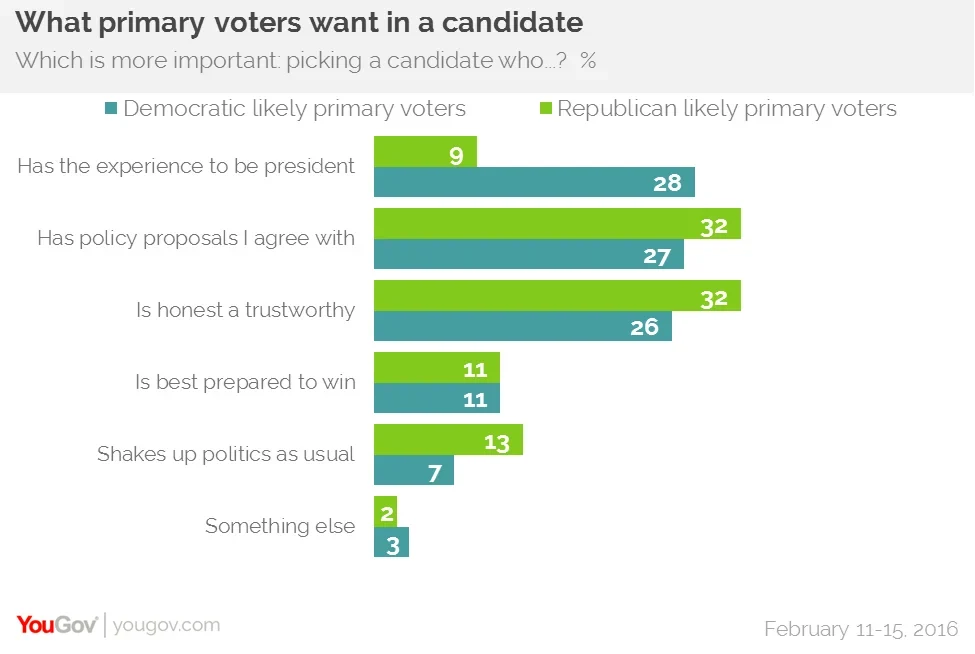
Republican voters are far less interested in experience in their party’s nominee.
Clinton performs much better than Sanders when it comes to the public’s perceptions of candidates’ readiness to serve as Commander-in-Chief, and even better (marginally overall, and significantly among Democratic primary voters) on Sanders signature issue, the economy. Although majorities of Democratic voters trust each of them to deal with the economy, Clinton does 14 points better.
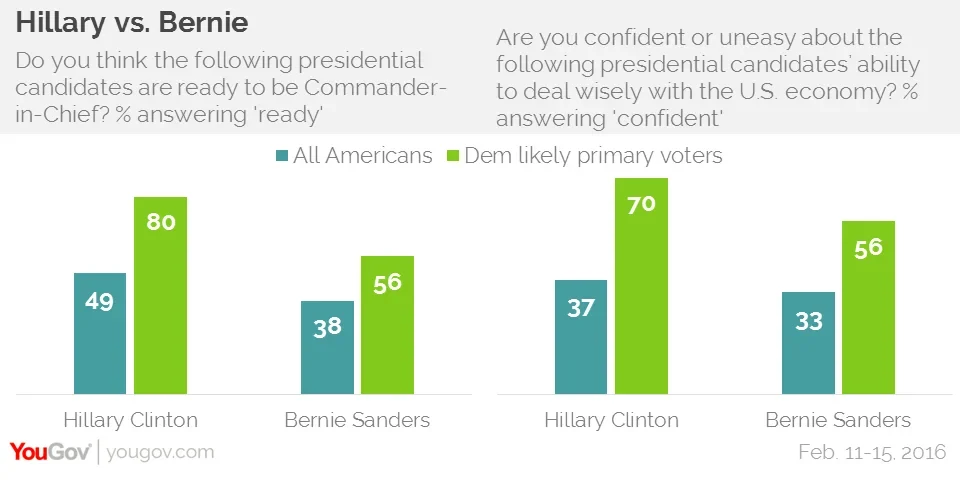
Among all Americans, Clinton is most likely of all the candidates to be seen as ready to be Commander-in-Chief. Former Florida Governor Jeb Bush is the highest scoring Republican, though just 34% say he is ready to serve. 43% say he is not. In addition, by more than two to one, Democrats choose Clinton when asked who would be more successful in achieving their goals.
Democratic voters do support Sanders’ push for single-payer health care, but aren’t convinced it can be adopted even if he wins the election. 55% of Democrats would support extending Medicare to everyone, and raising the taxes necessary to do it (only a third of the public overall support this plan). But most Democrats also think that single-payer health care would be unlikely to be adopted.
Despite the positive signs for Sanders in this poll, Hillary Clinton is still the choice of likely Democratic primary voters, with a national lead that is basically unchanged from two weeks ago, before the Iowa and New Hampshire events. She runs better with self-identified Democrats than with independents who say they will vote in a Democratic primary or caucus; has a 23-point lead with women; and while she and Sanders divide the white vote, she maintains – at least as of now -- her overwhelming lead with minority Democratic voters.
